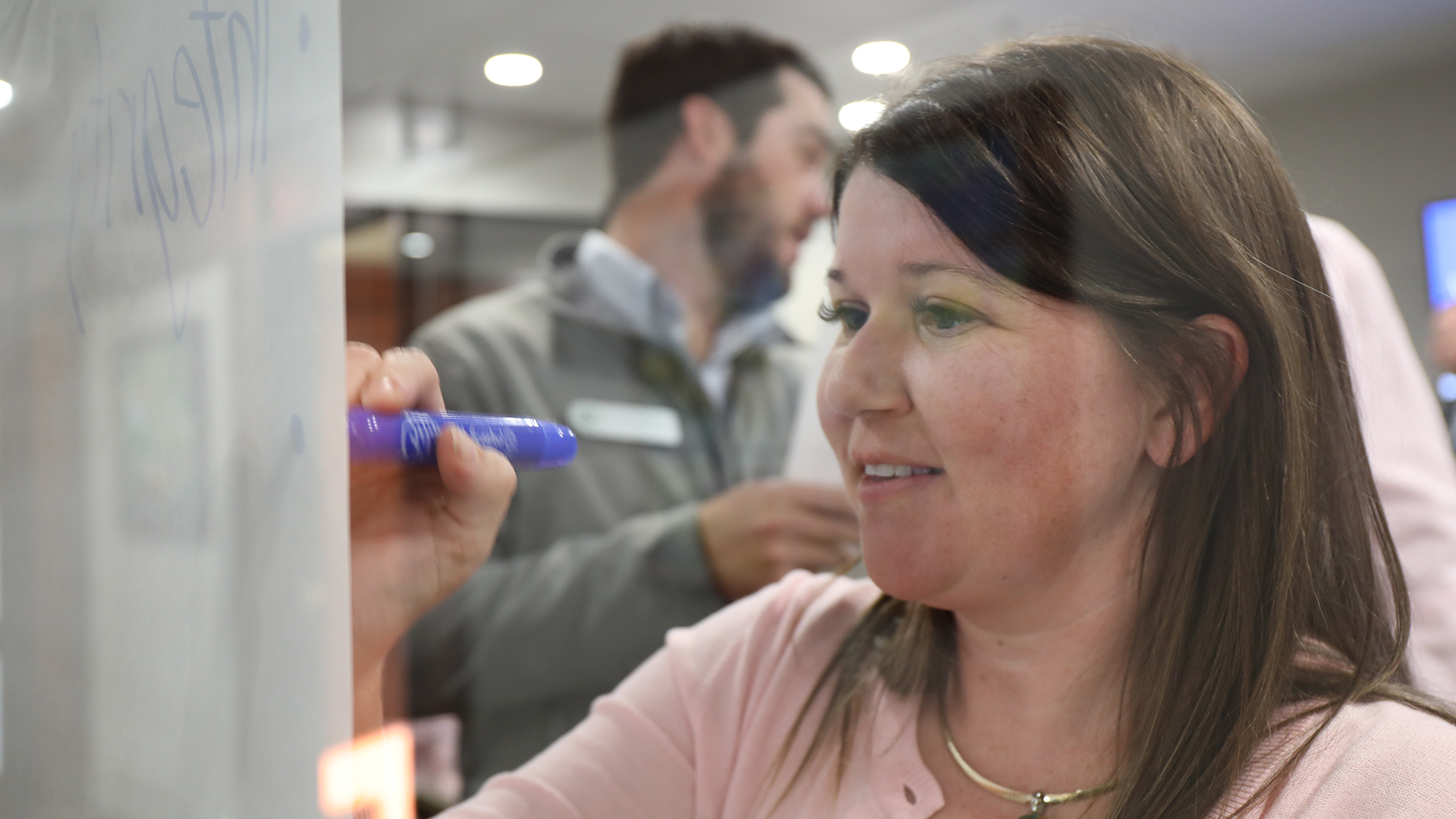
Creating Class Core Values
Creating Class Core Values – Only One Step in the Process
One of the many traditions for each class of the Wedgworth Leadership Institute is the articulation of class core values and the election of a tribunal. Class XI engaged in those activities during Seminar II in January. As all WLI alumni know, the tribunal dates back to Class I and is an important self-governing resource for the class. It’s rare the tribunal is officially used as the entire class participates in self-governing through keeping all class members, including themselves, accountable to the core values and standards of their class and of the program. In most cases, self-governing is done through one-on-one conversations providing encouragement as fellow colleagues walking down this same path of leadership and personal growth.
The class had an outstanding discussion around the idea of core values. It was outstanding not just because of the core values they settled on, but due to the engaging discussion and struggle in which they engaged. It is too easy for individuals and groups, including those with excellent leadership experience, to pass too quickly over a deep conversation about core values – What are they? Why do we need them?
The value of intentional thinking and conversation about core values is it provides a space for members of a group or team to learn more about each person’s standards. Often, we find that two or more individuals are using different words to describe what is discovered to mean much the same. Without time and intentional dialogue, that commonality might get lost and might be seen as a conflict.
The work around group core values is an instance where the process is just as important as the final product. The words that make up the core values communicates not only to this class, but to others the guiding principles of the group. The process to identify these core values hopefully gave each member of the class the opportunity to focus on this and engage in meaningful conversation.
As has been mentioned to the class on numerous occasions, the purpose of WLI is not to make the participants leaders – they already are leaders. The purpose of WLI is to build the leadership capacity for agriculture and natural resources by investing purposefully and intentionally in the personal and professional growth of these individuals. I would argue that one of the foundational aspects of this purposeful and intentional investment is discussion, and hopefully modeling, around core values and accountability.
Growing up listening to Paul Harvey on the radio I always looked forward to his segment. He was a great story teller and as interesting as the story was in the beginning, I knew as soon as I heard those famous word, “now, the rest of the story,” I was about to hear the most important parts of the story and the lesson it was to teach me. The idea of accountability is “the rest of the story,” when it comes to our conversation around core values. It is the linchpin that connects the core values to meaning, to learning, and to personal growth. Without accountability, core values are not worth the ink used to print them or the breath used to say them.
Opening oneself to another person, to say, “I will let you hold me accountable and I will hold you accountable” is not easy. However, time and time again many top-quality leaders share how they had this inner circle of friends, mentors, and/or colleagues to which they made themselves accountable. Do I think someone could be a leader without some form of self-imposed accountability? Yes. However, I would contend strongly that anyone who wants to be that “next-level” leader – that leader who transcends what they are capable of individually – having a network of persons with whom you are painfully honest and they with you, is critical.
I’ve heard people insist they don’t need any form of external, self-imposed accountability. They argue they are a “professional and will remain accountable to themselves.” Although I appreciate the independent and self-sufficient nature of this feeling, my experience tells me that thinking is flawed. This is not to discount the quality of the character of any individual. It has just been shown time and time again in multiple contexts – finances, religion, management, entrepreneurship, etc. – that having a small group of trusted individuals who you know will call you out, helps everyone reach long-term goals for business and personal growth.
This is my challenge to each member of Class XI, to each WLI alumni, and most importantly to myself– lean into accountability. Take the responsibility your classmates have honored you with to hold them accountability with great humility and grace. Carry out that responsibility understanding the magnitude of the trust each class member has place in you. Open yourself up to receive accountability with a gracious attitude and thankfulness that this person believes enough in you to invest their time and energy in your growth.
Yes, vulnerability is hard. The idea of tackling the hard thing to move forward is almost as old as time. Marcus Aureluis said it this way, “the impediment to action advances action. What stands in the way becomes the way.” Ryan Holiday summarizes it this way, “the obstacle is the way.” So, I encourage us all to use the challenge, the obstacle of accountability and vulnerability as the way to personal and professional growth. The opportunity is here, each of us just needs to take it.



You must be logged in to post a comment.